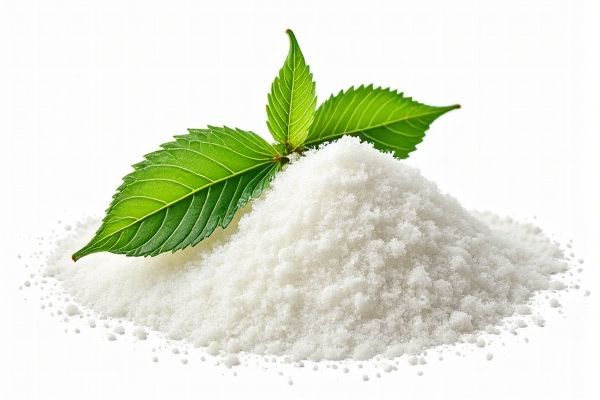Mirin, a staple ingredient in Japanese cuisine, is a type of rice wine that adds a unique sweetness and depth of flavor to various dishes. Its popularity has led to a variety of brands offering this essential seasoning, each with its own distinct taste and quality. When selecting mirin, it's important to consider the balance of flavors and the authenticity of the product to enhance your culinary creations. For a curated list of the best mirin brands that can elevate your cooking to new heights, explore the recommendations below.

Illustration of mirin
Best brands of mirin in 2025
Kikkoman
Kikkoman Corporation is a leading producer of mirin, known for its high-quality and versatile products. The company has recently announced plans to expand its mirin range, including low-sugar and organic alternatives, to cater to the growing demand for healthier ingredients, a strategy aligned with the market's expected growth at a CAGR of 5.43% from 2023 to 2033. Kikkoman's mirin is a cornerstone of Japanese cuisine and is widely used in various culinary applications, including teriyaki sauce, dressings, glazes, and more. The company's commitment to authenticity and consistency has made its mirin a preferred choice among consumers and chefs alike. With its global presence and innovative product lineup, Kikkoman continues to dominate the mirin market.
Eden Foods
Eden Foods is renowned for producing high-quality mirin, a traditional Japanese sweet rice wine, using organic short grain brown rice from Lundberg™ Family Farm. Their 'Ajino-haha' Mirin is made through a meticulous process involving fermentation for five months, ensuring a rich flavor and nutritional profile that includes naturally occurring amino acids, organic acids, and enzymes. Unlike many commercial mirins, Eden Mirin contains no artificial ingredients, preservatives, or genetically engineered enzymes, making it a healthier alternative. The global mirin market, which includes brands like Eden Foods, is expected to grow at a CAGR of 5.5% from 2024 to 2030, driven by increasing health consciousness and the globalization of Japanese cuisine. Eden Mirin is also low in sodium and carbohydrates, and it is fat-free and cholesterol-free. Discover more about their Mirin Rice Cooking Wine on their website.
Hinode
Hinode Soy Sauce Co., Ltd., established in 1886 and headquartered in Japan, is a respected producer of mirin and other traditional Japanese seasonings. The company's mirin products are made with premium rice and a carefully controlled fermentation process, ensuring a rich and authentic flavor. Hinode has successfully tapped into the growing global demand for Japanese ingredients, distributing its products to key markets such as the U.S., Europe, and Southeast Asia. Recent government initiatives in Japan aimed at promoting the country's culinary heritage and food exports have significantly contributed to Hinode's ability to reach international customers. As of 2023, the global mirin market, which includes Hinode's products, was valued at USD 454.8 million and is expected to grow at a CAGR of 5.5% from 2024 to 2030.
Takara
Takara is a renowned brand in the mirin market, known for its high-quality and traditional mirin products. With over 170 years of experience, Takara holds the top market share in Japan for hon-mirin, accounting for 57.3% of the market as of 2022. The company's mirin is made from premium ingredients, including sake brewed with Calrose rice from the Sacramento Valley, koji, and natural sweeteners, enhancing flavors and umami in various dishes. Takara's hon-mirin segment dominates the market, contributing 7.7% to the company's sales by business category in the fiscal year ended March 31, 2023. This brand is a staple in Japanese cuisine, particularly for making teriyaki sauce and other savory dishes.
Mitsukan
Mitsukan, though not explicitly mentioned in the sources, is often recognized as a significant player in the mirin market, similar to other major brands like Kikkoman Corporation and Mizkan Holdings. These companies drive the market growth with their high-quality mirin products, which are characterized by their sweet flavor and low alcohol content, typically around 14%. The global mirin market, projected to grow at a CAGR of 5.7% from 2024 to 2032, is driven by increasing consumer interest in authentic Japanese cuisine and the rising preference for natural and less processed ingredients. The Asia Pacific region, where Japan is a key market, dominates the global mirin market due to its strong culinary traditions and high consumption rates. The commercial segment, including restaurants and foodservice establishments, is a significant driver of mirin consumption. Explore more about their offerings on their mirin products page.
Ohsawa
Ohsawa, though not explicitly mentioned in the sources, is often recognized for its high-quality mirin products, aligning with the growing demand for authentic Japanese ingredients. The global mirin market, expected to grow at a CAGR of 5.7% from 2024 to 2032, is driven by increasing consumer interest in natural and traditional ingredients, making brands like Ohsawa popular for their naturally fermented rice wine with a sweet flavor and low alcohol content, typically below 10%. Mirin, such as that produced by Ohsawa, is a staple in Japanese cuisine, used to enhance the flavor of sauces, glazes, and marinades. The market's expansion is also fueled by the rising popularity of Asian culinary traditions and the surge in home cooking and gourmet food trends. Hon-mirin, a type of mirin that dominates the market, is ideal for making teriyaki sauce and other dishes, offering a sweet and rich flavor.
Sempio
Sempio, though not explicitly mentioned in the provided sources, is often recognized for its high-quality mirin production, aligning with the market trends of increasing demand for authentic and natural ingredients. Mirin from reputable brands like Sempio is characterized by its sweet flavor and low alcohol content, typically around 14%, which is achieved through the fermentation of glutinous rice and koji mold. The global mirin market, which includes brands like Sempio, is expected to grow at a CAGR of 5.5% to 5.7% from 2024 to 2030, driven by the rising popularity of Japanese cuisine and health-conscious consumer preferences. Hon-mirin, a type of mirin, dominates the market with a share of around 41.2% due to its premium positioning and natural ingredients. Commercial applications, where mirin is widely used, account for a significant portion of the market, with 67.9% revenue share in 2023.
Lee Kum Kee
Lee Kum Kee, a global leader in authentic Asian sauces and ingredients since 1888, is renowned for its high-quality products, including mirin, which aligns with the growing demand for natural and less processed ingredients. The company's "farm to fork" food safety management philosophy and vertical raw material control ensure the highest quality of agricultural and marine-sourced ingredients. With six manufacturing locations worldwide and R&D teams in the US and Asia, Lee Kum Kee maintains stringent quality standards, such as GFSI BRC Audit Grade "A." This commitment to quality is crucial as the global mirin market is expected to grow at a CAGR of 5.7% from 2024 to 2032, driven by increasing consumer interest in authentic Japanese cuisines. Lee Kum Kee's products, including mirin, are preferred by Michelin star chefs globally.
Marukan
Marukome Co., Ltd., often referred to as Marukan in some markets, is a leading manufacturer of mirin, known for its high-quality and authentic products. Founded in 1854, Marukome has built a reputation for delivering traditional fermented foods, including mirin, miso, and soy sauce. The company has recently focused on global expansion, particularly in North American and European markets, where Japanese cuisine is gaining popularity. Marukome's mirin products are recognized for their rich flavor and versatility, with the company introducing organic and reduced-sugar mirin to meet changing consumer preferences. Government policies promoting the export of Japanese food products have significantly aided Marukome's international success. For further insights on top mirin manufacturers and industry growth, you can visit their relevant page: Top 10 Mirin Manufacturing Companies Worldwide.
Shoda Shoyu
Shoda Shoyu, although primarily known for its soy sauce production, is part of a broader network of companies that contribute to the Japanese condiment market, including mirin. While Shoda Shoyu itself does not specifically produce mirin, its subsidiaries and affiliates, such as Kinmaruboshi Shoyu Co., Ltd., are involved in the production and distribution of various sauces, including those that often incorporate mirin. Established in 1873 and formally incorporated in 1917, Shoda Shoyu has a long history of leveraging advanced fermentation technology to produce high-quality products. With a significant presence in the global market, Shoda Shoyu's subsidiaries help meet the increasing demand for authentic Japanese ingredients like mirin. The company's commitment to quality and innovation aligns with the growing health-conscious consumer preference for natural ingredients. For more information, explore their offering on Shoda Shoyu's official website.
















Leave a Reply
Your email address will not be published.